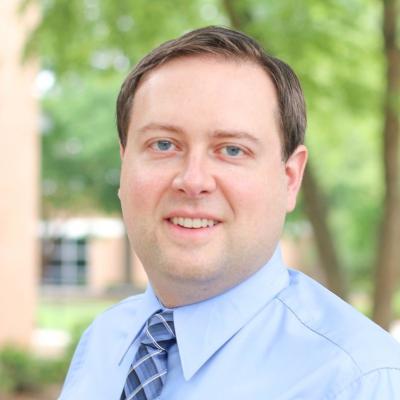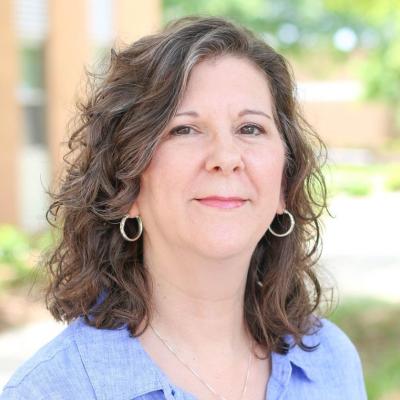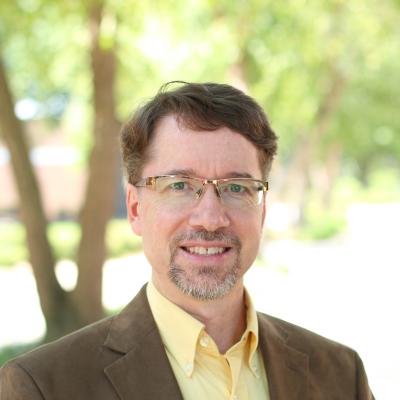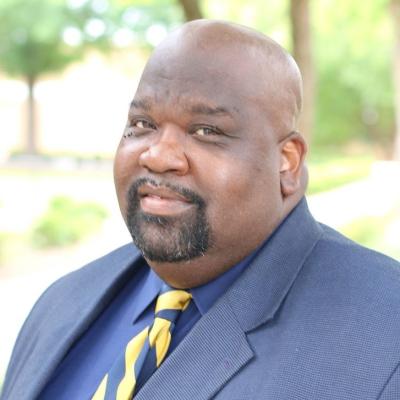Deepen Your Knowledge and Become a Leader in TESOL
Columbia International University’s Master of Divinity in Teaching English to Speakers of Other Languages will provide you with a comprehensive range of biblical-theological knowledge and practical skills for ministry leadership in a variety of contexts. Through a personalized curriculum tailored to your needs, this program will prepare you for effective ministry in local churches, para-church organizations or mission agencies.
In addition to the core objectives of the Master of Divinity degree, if you have a passion for teaching English to non-native speakers, the TESOL specialization within this program is perfect for you. This specialization will provide you with excellent training in helping individuals gain proficiency in the English language. Whether your desire is to teach in a language institute or university in China or the Middle East or to serve in the public school system in the United States, this program will equip you with the necessary skills and knowledge.
As a student in the Master of Divinity program, you will learn to:
Analyze and synthesize the foundational content, context and themes of the Old and New Testaments. With an emphasis on God’s historical-redemptive mission as revealed through Scripture’s metanarrative and exemplified in the Great Commission, you will gain a deep understanding of the biblical text and its relevance to contemporary issues in both individual and corporate contexts.
Engage with contemporary global challenges, exploring orthodox belief and practice by drawing support from key biblical passages that undergird foundational doctrines. By applying insights from the history of global Christianity to 21st-century issues, needs and challenges, you will develop a well-rounded perspective and be equipped to address them effectively.
Understand cultures and worldviews from a biblical perspective. This will serve as the foundation for your ability to engage in effective, biblically contextualized ministry that equips and encourages others to grow as disciples and disciple-makers, whether it be in the church, mission field or marketplace.
The Master of Divinity in TESOL program also places a strong emphasis on the application of biblical principles, techniques and paradigms to various areas of ministry, including leadership, pastoring, preaching, teaching and counseling. Through hands-on experiences and practical assignments, you will develop the necessary skills and attitudes to minister effectively in these areas.
At Columbia International University, we offer you the flexibility to pursue your Master of Divinity in TESOL either face-to-face on our beautiful campus in Columbia, South Carolina, completing the program in one academic year, or through our cutting-edge interactive online format. The online courses, each spanning eight weeks, are designed to accommodate your schedule while providing a rich learning experience. You will have the opportunity to study alongside other students in a cohort, learning from recognized experts in the field.
Throughout the program, you will engage in courses focused on linguistics, syntax, teaching methods and other areas essential for becoming an excellent English teacher. Our goal is to equip you with the necessary tools and strategies to make a lasting impact in the lives of non-native English speakers.
Come to Columbia International University and embark on a transformative journey in the Master of Divinity in TESOL program. Whether you choose to study on campus or online, we are committed to providing you with a comprehensive education that combines biblical principles, practical skills and a global perspective. Prepare yourself for a rewarding ministry in teaching English and sharing the love of Christ with individuals from diverse linguistic and cultural backgrounds.
Why Choose Columbia Biblical Seminary for this degree program:
As a student in our MDiv in TESOL program, you will have the privilege of studying under professors who possess a wealth of experience in teaching English both internationally and in North America. These dedicated faculty members have spent many years immersed in the field, gaining invaluable insights and expertise that they bring to the classroom. What sets our program apart is that our faculty members have not only taught English but have also lived and continue to live out the principles and practices they teach. Their real-world experiences will provide you with practical wisdom and guidance as you pursue your own journey in becoming an effective English teacher.
Through engaging lectures, interactive discussions and hands-on experiences, you will have the opportunity to learn from these seasoned professionals who have a deep passion for teaching and a heart for equipping others. Their commitment to your growth and development as a TESOL practitioner will be evident as they invest their knowledge, skills and personal experiences into your education.
At CIU, we understand that studying TESOL is not just about theory and academic knowledge; it’s about acquiring the practical tools and strategies needed to excel in the classroom. That’s why our faculty members focus on bridging the gap between theory and practice, ensuring that you are well-prepared to navigate the challenges and opportunities of teaching English as a second language. You will benefit from their expertise in curriculum design, lesson planning, language acquisition and classroom management, gaining the skills necessary to create engaging and effective learning experiences for your future students.
Overall Benefits of the degree — what you can do with the degree:
The MDiv in TESOL provides training for those desiring to teaching English to speakers of other languages around the world and in North America. Graduates from this program are equipped to teach English in a number of contexts, including:
- Teaching English in a global university.
- Teaching English in a language institute around the world or in North America.
- Teaching English among children and youth in a public or private school system in the United States.
- Teaching English among adult refugees and asylum seekers around the world or in North America.
Graduates may consider pursuing PhD work leading to careers in college, seminary and university-level teaching, both in the United States and abroad.
Featured Faculty
What Will I Study?
In addition to the Master of Divinity core, you will take courses such as:
- INT 6110 Foundations of Internships
This course is intended as a prerequisite for other INT courses. You will prepare for an internship by establishing a clear plan for learning and understanding the expectations, responsibilities, and activities associated with your internship experience. You must complete this course before you begin your internship. You do not need to secure an internship before enrolling in this course.
0.00 credit hours
- INT 6217 Focused Internship I
In this course, you will enhane your proficiency in ministry and organizational knowledge, skills, and attitudes gained through your studies in a focused internship under the supervision of an on-site mentor and a faculty advisor. Each course involves at least 120 hours of direct ministry experience. (1.5)
1.50 credit hours
- INT 6218 Focused Internship II
In this course, you will enhane your proficiency in ministry and organizational knowledge, skills, and attitudes gained through your studies in a focused internship under the supervision of an on-site mentor and a faculty advisor. Each course involves at least 120 hours of direct ministry experience. (1.5)
1.50 credit hours
- LNG 5040 Teaching Listening, Speaking, and Pronunciation
This course explores alternative methods and techniques for teaching listening, speaking, and pronunciation to K-12 and adult English Language Learners (ELLs) at various levels of proficiency. It includes theoretical foundations, and students will design their own lesson plans that are contextually applicable in a variety of instructional settings.
3.00 credit hours
- LNG 5045 Teaching Reading, Writing, and Grammar
This course explores alternative methods and techniques for teaching reading, writing, and grammar to K-12 and adult English Language Learners (ELLs) at various levels of proficiency. It also examines the principles and processes of ESOL reading and writing, as well as pedagogical theories and relevant materials for ELLs. Students will design their own lesson plans that are contextually applicable in a variety of instructional settings.
3.00 credit hours
- LNG 5710 Theoretical Foundations-Language Teaching
This course is an introduction to the principles and practices of English language teaching. It examines the theories and practices of language teaching and learning in general, and English language teaching and learning in particular, focusing on research-based practices and strategies for teaching K-12 as well as adult English language learners. Students will also learn the principles of curriculum development and assessment for language programs.
3.00 credit hours
- LNG 6114 Introduction to Linguistics
This course is an introductory survey of some of the major areas of linguistics. It is intended to inform the student of how language works at different levels and how those levels interact with one another. This course covers Phonetics (the study of speech sounds), Phonology (the sound systems of individual languages), Morphology (the origin and structure of words), Semantics (how words make meaning), Pragmatics (language in its context), Sociolinguistics (language in society), and the History of English. It does not include Syntax since that is covered in a separate course.
3.00 credit hours
- LNG 6655 Introduction to Syntax
This course is an introductory study of the foundational concepts of syntax. It is especially designed for the teacher of English as a foreign language, with primary emphasis on applying syntactic theory to the study of English grammer.
3.00 credit hours
Admission Requirements
- completed application
- affirmation that you are a Christian and agree with CIU’s Statement of Faith
- official transcript(s) for completed bachelor’s degree(s) * +
- official transcript(s) for any graduate-level coursework +
- essay (approximately 800 words)
- church leader reference
- * If you have not completed an undergraduate bachelor’s degree, you can still potentially apply for admission in accordance with CIU’s Non-Baccalaureate Policy.
- + If you have attended a school outside of the United States, you must have your transcripts validated through World Education Services.
International applicants also need:
- submitted test scores for one of the following standardized tests for the English language:
- Test of English as a Foreign Language (minimum score of 79)
- DuoLingo (minimum score of 105)
- completed educational background form (provided after application submission)
- financial certification of funds form (provided after application submission)
Accreditation and Accolades
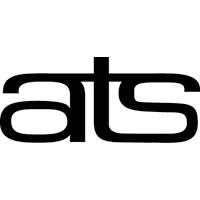

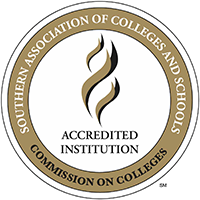
Career Path Opportunities
- Teaching English in a global university.
- Teaching English in a language institute around the world or in North America.
- Teaching English among children and youth in a public or private school system in the United States.
- Teaching English among adult refugees and asylum seekers around the world or in North America.
- Academic Careers by pursuing PhD work leading to careers in college, seminary and university-level teaching, both in the United States and abroad.
Top FAQs
- What career opportunities are available with an MDiv in TESOL?
-
- Teaching English in a global university.
- Teaching English in a language institute around the world or in North America.
- Teaching English among children and youth in a public or private school system in the United States.
- Teaching English among adult refugees and asylum seekers around the world or in North America.
- Pursuing Ph.D. work leading to careers in college, seminary and university-level teaching, both in the United States and abroad.
- Can I take this program residentially, online or both?
-
Our MDiv in TESOL is fully available either residentially or online. All its required courses are offered in both formats.
As a residential student, you will benefit from close interaction with professors and other students, building relationships that can support you for a lifetime of ministry. Classes are designed around block schedules, which gives you flexibility if you are working or serving in ministry while taking courses. Residential students have the option to take courses online if they wish.
As an online student, you will benefit from courses that foster your learning within the context of an intentional learning community. We recognize that not everyone can uproot themselves and move to seminary. For this reason, all our courses are asynchronous. This allows you to continue working and serving where you are located while taking courses. At the same time, you will be provided with opportunities to have regular live online meetings with your professors and classmates, if you so desire.
- How long does it take?
-
Residential courses follow a 16-week semester format, with two semesters per calendar year (Fall and Spring). Thus, residential students can complete this program in about three years (full time, taking three courses per semester) or in about five years (part time, taking two courses per semester).
Online courses follow an eight-week term format, with six terms per calendar year (Spring 1, Spring 2, Summer 1, Summer 2, Fall 1, Fall 2). Online students can complete this program in about two years (full time, taking two courses per online term) or in about four years (part time, taking one course per online term).
Hybrid students can complete this program in about three years.
- When can I start this program?
-
Residential courses follow a 16-week semester format and have two starts every year. The spring semester begins in January and the fall semester begins in August, with a break for summer in between semesters.
Online courses follow an eight-week term format and have six starts every year. Every eight weeks is a new start, meaning there are two online terms offered each spring, summer and fall.
- How much does it cost?
-
Please check the Tuition and Fees page for the most up-to-date information. There are certain discounts and benefits given for military status and to employees and family members of our partner organizations. Our financial aid counselors will help you determine the best way to finance this important investment in your future career earnings. For more detailed information, check our Financial Aid page and select the option for online students here.
- Is Bible software provided to me as a student?
-
Yes, upon enrolling in your first course, you will receive a professional-level copy of Accordance Bible Software customized for your studies at Columbia Biblical Seminary. You may keep this this software upon graduation.
- How much time does a single class take?
-
You should plan on about 15 hours per week for one online class.
- Do I need to come to campus?
-
For online students, there is no requirement to come to campus but we are always happy to see you for a visit or when you come for graduation.
